 I am deliberately avoiding calling this “Good to Outstanding”. Ofsted can do what they wish but I want to see great teaching and learning and do very often. We teachers always try and produce good lessons and positive learning but we have bad days, pupils have bad days; whole school stuff disrupts, SLT disrupt! However we can consider moving from good to great with a sustainable manageable approach, bringing inspiration, inspiration, inspiration – that get’s pupils learning by definition! Here are my top ten:
I am deliberately avoiding calling this “Good to Outstanding”. Ofsted can do what they wish but I want to see great teaching and learning and do very often. We teachers always try and produce good lessons and positive learning but we have bad days, pupils have bad days; whole school stuff disrupts, SLT disrupt! However we can consider moving from good to great with a sustainable manageable approach, bringing inspiration, inspiration, inspiration – that get’s pupils learning by definition! Here are my top ten:
1 Great teachers know their subject inside out
Not only do they have good knowledge of their specifications, they have a wide grasp of their subject. They understand it very well, they can apply ideas and synthesise them. This is not about pedagogy (yet) it’s about wisdom in the subject. It’s about keeping up to date, reading, identifying interesting stuff in the news or other media. It’s about maintaining a network of contacts to follow the latest developments. It might even be about visiting places of interest like museums or going to lectures, of picking up podcasts. It might even mean rereading text books. Always try to find time to read and expose yourself to new stuff in your subject.
 2 Knowing the tough topics and lessons
2 Knowing the tough topics and lessons
It takes time to suss out what pupils find hard and of course it varies by ability and age but this is the next critical aspect to make a sustainable difference. What topics pupils find hard and challenging ; what skills they need that prove difficult to develop. Its about knowing the best introductions to topics, the best conclusions, the most effective assessments ( formal or informal) that help build confidence and show the teacher what needs to be done next. Our big duty as teachers of KS4 and KS5 exams is to ensure our pupils know what they have to do to achieve a given grade and then teach them to those standards. Be absolutely clear what they must do to get that A* or that E whatever is appropriate. Phrases like “they need to work harder” or “just understand more” are probably correct but of little value to the pupil who is willing and works hard. However knowing what they need to know and do, we work backwards to build that into the day to day week by week lesson plans. I’m not keen on lots of past papers and exam practice I’m very keen on my students understanding my subject. This is a big challenge when we all face new specs but hang it we all face that – so look out for blogs, read exam boards support stuff and well much won’t change – if pupils find equilibrium difficult now in the GCSE spec, they probably will next year with the new spec.
3 Maintain enthusiasm, humour and jazz
 Pupils love a teacher who knows their stuff, they enjoy the relevant anecdote or story telling and they like a touch of humour. (Great teachers do not grow old they just lose their class) They like to try and distract you and …you know it. You have taught for a good while now, so you know what works, what goes down well and you should milk it for all it’s worth. Hone and refine the skills – you should feel like the conductor of the orchestra.
Pupils love a teacher who knows their stuff, they enjoy the relevant anecdote or story telling and they like a touch of humour. (Great teachers do not grow old they just lose their class) They like to try and distract you and …you know it. You have taught for a good while now, so you know what works, what goes down well and you should milk it for all it’s worth. Hone and refine the skills – you should feel like the conductor of the orchestra.
4 Know your pupils inside out
 Some of the older pupils you taught when younger or came across in your football team or orchestra, maybe even had a run in as a head of year. You might well have taught an older sibling. So you understand the dynamics of the family and you know how they are likely to respond and for those you don’t know so well, you know your school community better. You also know how to handle the reactions. If you have to call home about homework there are after all only a few responses from parents: “thank you for telling us/so what/we don’t have any issues from other staff it must be you”. So you know what to say in response, you know who else to mention on the SLT if necessary. Exploit this to raise standards, to flush out more work and better quality work. All that investment in the craft of the classroom over recent years should after all bear fruit. It really isnt a blank canvas. You should know the G&T the SEND and more-so you should know what works and what doesn’t, so take it in your stride.
Some of the older pupils you taught when younger or came across in your football team or orchestra, maybe even had a run in as a head of year. You might well have taught an older sibling. So you understand the dynamics of the family and you know how they are likely to respond and for those you don’t know so well, you know your school community better. You also know how to handle the reactions. If you have to call home about homework there are after all only a few responses from parents: “thank you for telling us/so what/we don’t have any issues from other staff it must be you”. So you know what to say in response, you know who else to mention on the SLT if necessary. Exploit this to raise standards, to flush out more work and better quality work. All that investment in the craft of the classroom over recent years should after all bear fruit. It really isnt a blank canvas. You should know the G&T the SEND and more-so you should know what works and what doesn’t, so take it in your stride.
5 Systems
You know all  of the school systems such as those for behaviour management and discipline those for reporting problems and those for reporting achievements and awards and merits etc. You know when reports are due and mocks or tests come along BUT by now you should be able to work a system which suits you and your subject. No whole school assessment system can suit every subject, so where do you need to branch out? When do you need your own mock, when do you need an extra assessment. You also know the rhythm of school and seasons, for example it’s not a good idea to leave a really difficult 3 week topic to mid winter; you know when illness is at its worst and can sort out work around it. You have a sense of the need for a really really outstanding lesson to lift spirits ( yours and theirs). You know what to do about ill pupils, about those who get stuck ( see me after the lesson? – not really going to work is it; what does work?). So within this class this group add a layer of your own systems to supplement the schools
of the school systems such as those for behaviour management and discipline those for reporting problems and those for reporting achievements and awards and merits etc. You know when reports are due and mocks or tests come along BUT by now you should be able to work a system which suits you and your subject. No whole school assessment system can suit every subject, so where do you need to branch out? When do you need your own mock, when do you need an extra assessment. You also know the rhythm of school and seasons, for example it’s not a good idea to leave a really difficult 3 week topic to mid winter; you know when illness is at its worst and can sort out work around it. You have a sense of the need for a really really outstanding lesson to lift spirits ( yours and theirs). You know what to do about ill pupils, about those who get stuck ( see me after the lesson? – not really going to work is it; what does work?). So within this class this group add a layer of your own systems to supplement the schools
6 Confidence and Resilience 
You can be confident in the classroom, a confident teacher, a confident behaviour manager, a confident leader. Ooze that confidence to your pupils and ooze it so much that your pupils pick it up. They need more confidence and resilience, make sure you pass that on to. How? Well by inspiring their progress and pointing out how far they have come -as much as the distance they still have to go. Help develop them as independent learners; it wont be easy and it definitely wont be less work but it will likely be a greater impact on their state of mind. Tell them -this topic is tricky and tell them when they’ve got it and of course when they have not got it. They need to go into your exam full knowing a) this subject is tricky b) I have to work hard but I have worked hard and c) I have been well prepared and can perform. It’s no different to the big football game or England vs Australia for the world cup ….oh hang on.
Then there is resilience, the ability to cope with stuff thrown at you and designed to throw you. You cope quite well with that, have a think how you do so, think what wisdom has brought you to the point of coping better now than the last time you faced that issue. You need to bottle this, not least for yourself ( see end of post) but also to start to work out how to pass this on to those pupils who need to develop it all too.
7 Activities and resources
You have plenty now, as above you know what works and what is still weak. Look ahead if that Powerpoint didn’t work last year it needs a tweak. That lesson which was rather boring and lost the pupils, does it need something extra. SOmetimes though, be frank the topic is boring the lesson can be boring and this bit of learning is boring that’s how it is but you should know this now.You alos know the subtle bits, you know sometimes that some content isn’t covered so well and needed more time but it’s now time for revision. OK you are the wise professional balance the time carefully for the pupils. When they say ” have we finished the spec yet?” reply confidently “not quite yet but we will and more importantly how do you feel your understanding of the spec is going?”

8 Talk, converse, chat, discuss…..
I have taught for 34 years but I still love chatting Chemistry to my colleagues. Still asking what I might do to improve. Still observing an NQT or a student and thinking that is clever. Still talking about classes. I recently had a Y13 who were very quiet and so I spent much time with a colleague discussing what we might try to do, even discussed them with other subject staff. Talk to SENCO, talk to HoYr talk to parents and most important talk to the pupils. Check you spend as much time talking children and subjects as you do moaning about me (the head/SLT) or the government or the weather. However do have a moan. we all need that.
9 Data, pupils or surprises
 You must know by now there is a lot of data for you. FFT (new) Sims, prior knowledge and especially exam board performance data on question level etc etc Use it but not without care or discrimination. Your own analysis of previous pupils performance tells you a lot – do they do better on exams or coursework; this bit of this unit is really challenging. When you check how your pupils performed on Q3 of paper 1 last year that was to inform you as to what to do this year – the same or different. Yes maximise those marginal gains. Data should show no surprises. I had a conversation the other day ” We were disappointed not to get more A*”. Should some pupils have got A*? Did they get A* in other subjects? Were their various targets A*? If the answer was their prior performance predicted no A*, like everyone be the optimist and sure “aim high” we all need that. However stop beating yourself up, be realistic, be of sober judgment, sure aspire, we heads love all that but the job needs to be sustainable and enjoyable as well as all the inflicted pressures – try not to add to that yourself or on your colleagues. However more important then being level 5b or blue ladder 6 or smiley face yellow is “you know this, understand that can do the other and NOW to improve you need to do this….” Knowing pupils not knowing data is critical. Data should avoid surprises – I had no idea she was that good/bad/struggling etc
You must know by now there is a lot of data for you. FFT (new) Sims, prior knowledge and especially exam board performance data on question level etc etc Use it but not without care or discrimination. Your own analysis of previous pupils performance tells you a lot – do they do better on exams or coursework; this bit of this unit is really challenging. When you check how your pupils performed on Q3 of paper 1 last year that was to inform you as to what to do this year – the same or different. Yes maximise those marginal gains. Data should show no surprises. I had a conversation the other day ” We were disappointed not to get more A*”. Should some pupils have got A*? Did they get A* in other subjects? Were their various targets A*? If the answer was their prior performance predicted no A*, like everyone be the optimist and sure “aim high” we all need that. However stop beating yourself up, be realistic, be of sober judgment, sure aspire, we heads love all that but the job needs to be sustainable and enjoyable as well as all the inflicted pressures – try not to add to that yourself or on your colleagues. However more important then being level 5b or blue ladder 6 or smiley face yellow is “you know this, understand that can do the other and NOW to improve you need to do this….” Knowing pupils not knowing data is critical. Data should avoid surprises – I had no idea she was that good/bad/struggling etc
10 Inspire, Reward and Challenge……and honesty
You teach a great subject, yes? You teach generally great pupils yes? You know how the classroom heart beats yes? Good, good, now capitalise on all that inspire them, praise them and when they slip challenge them or when they get it challenge them even further. Oh and you make a few mistakes, the odd idea doesn’t work – you are big enough now to admit it, share it and sort it, not under the table but on the table.
other responsibilities
My last point isn’t advice but challenge. My guess is you also have responsibilities three
1 Family – don’t neglect your rightful duties to families not just children but parents and grandparents too and friends who need you. It’s a challenge
2 Other responsibilities in school . After 4/5 years you might well have other responsibilities: pastoral as a heads of year or academic as a subject lead or other jobs like student mentor etc etc. You need to fulfil these duties swiftly, clearly and deftly but the key difference you make is as a classroom teacher and that is in the day to day in the classroom.
3 Yourself. I’ve seen too many people who end up burnt out, or cynical or the poorer in the job. It’s never simple to say why but make sure you look after yourself. Personally this is the one I find hardest. Getting to the gym, taking enough time off, reading for pleasure etc etc check out the #teacher5aday and enjoyreading what others are thinking about and doing and check yourself. Why not get a critical friend to help you? My previous head often emailed me at 10pm saying get off that **** computer and talk to the family.
 AND be uplifted to be a GREAT teacher isnt even rocket science you can do it and be the great teacher you can be.
AND be uplifted to be a GREAT teacher isnt even rocket science you can do it and be the great teacher you can be.





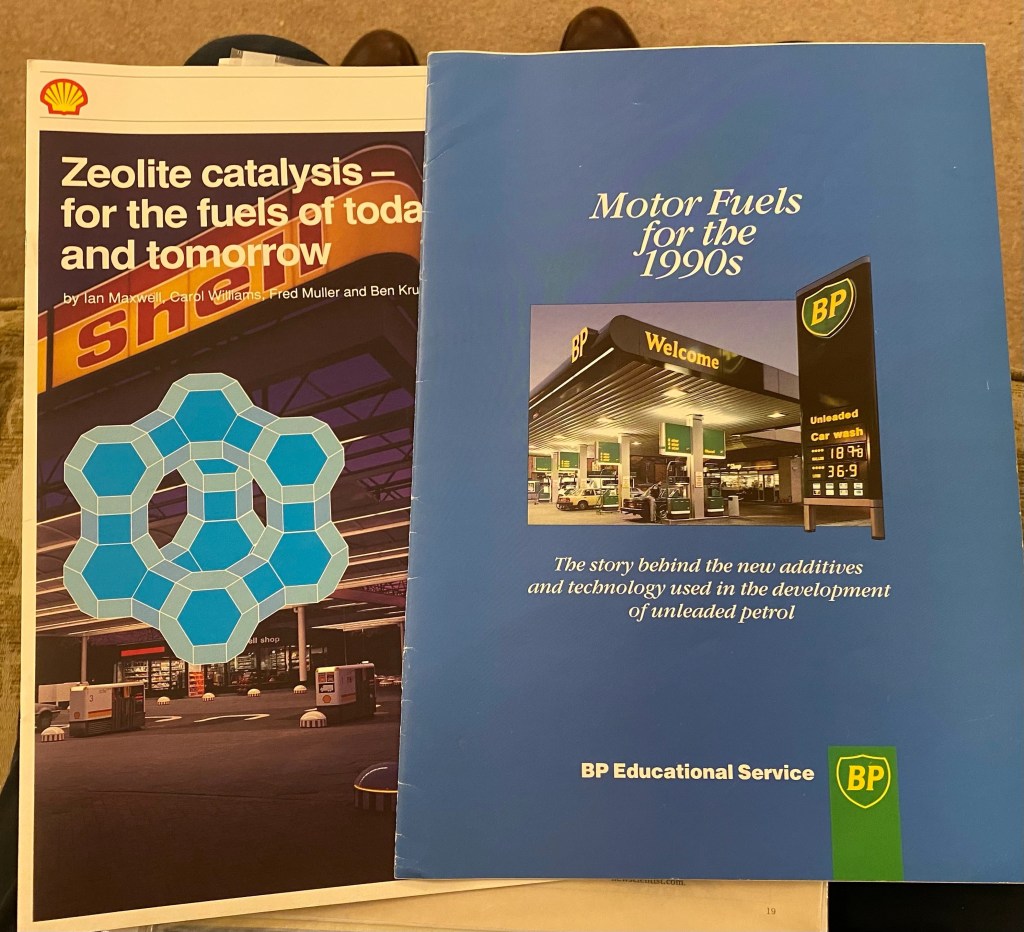


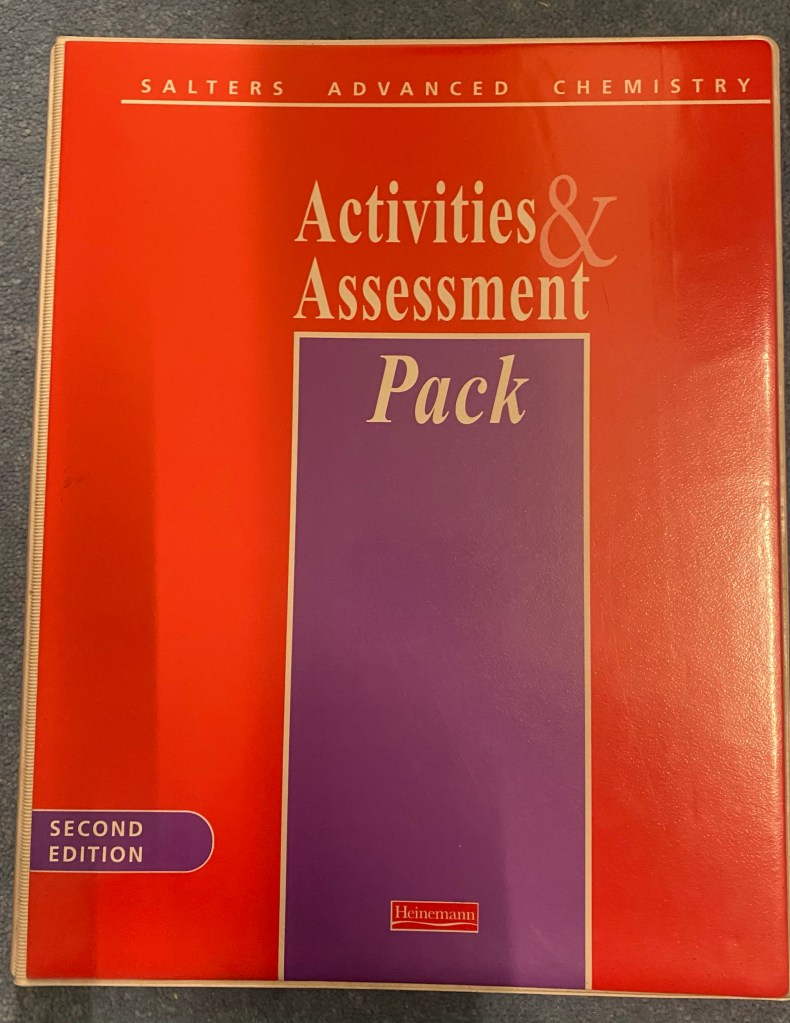







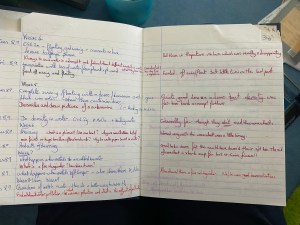
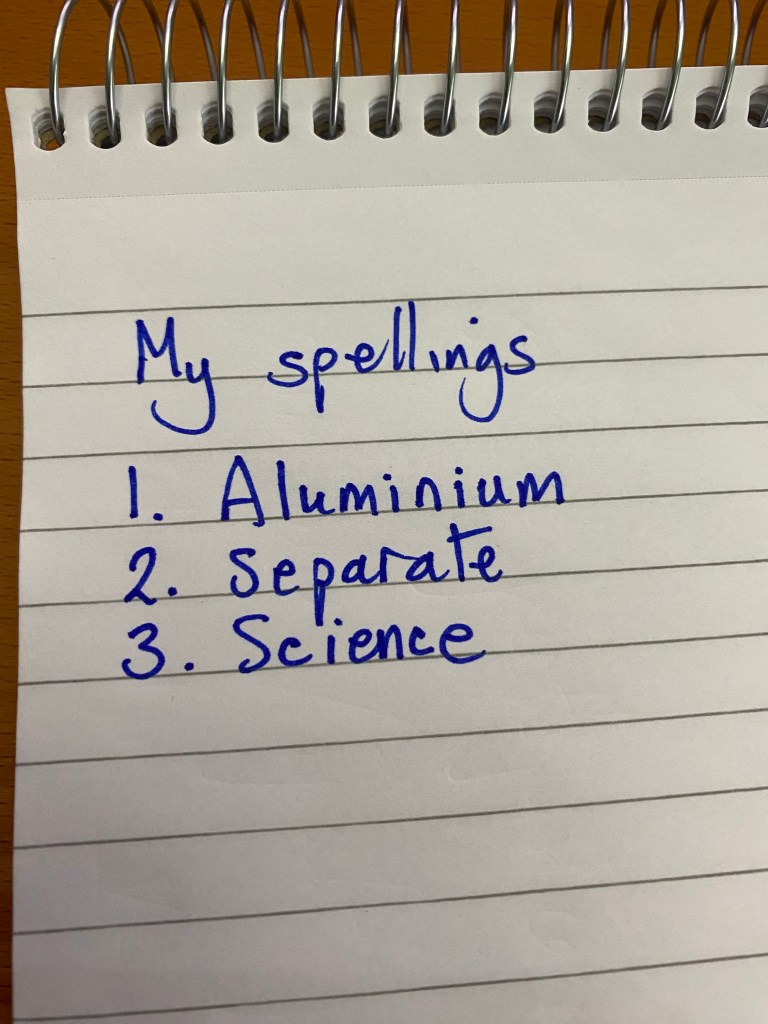










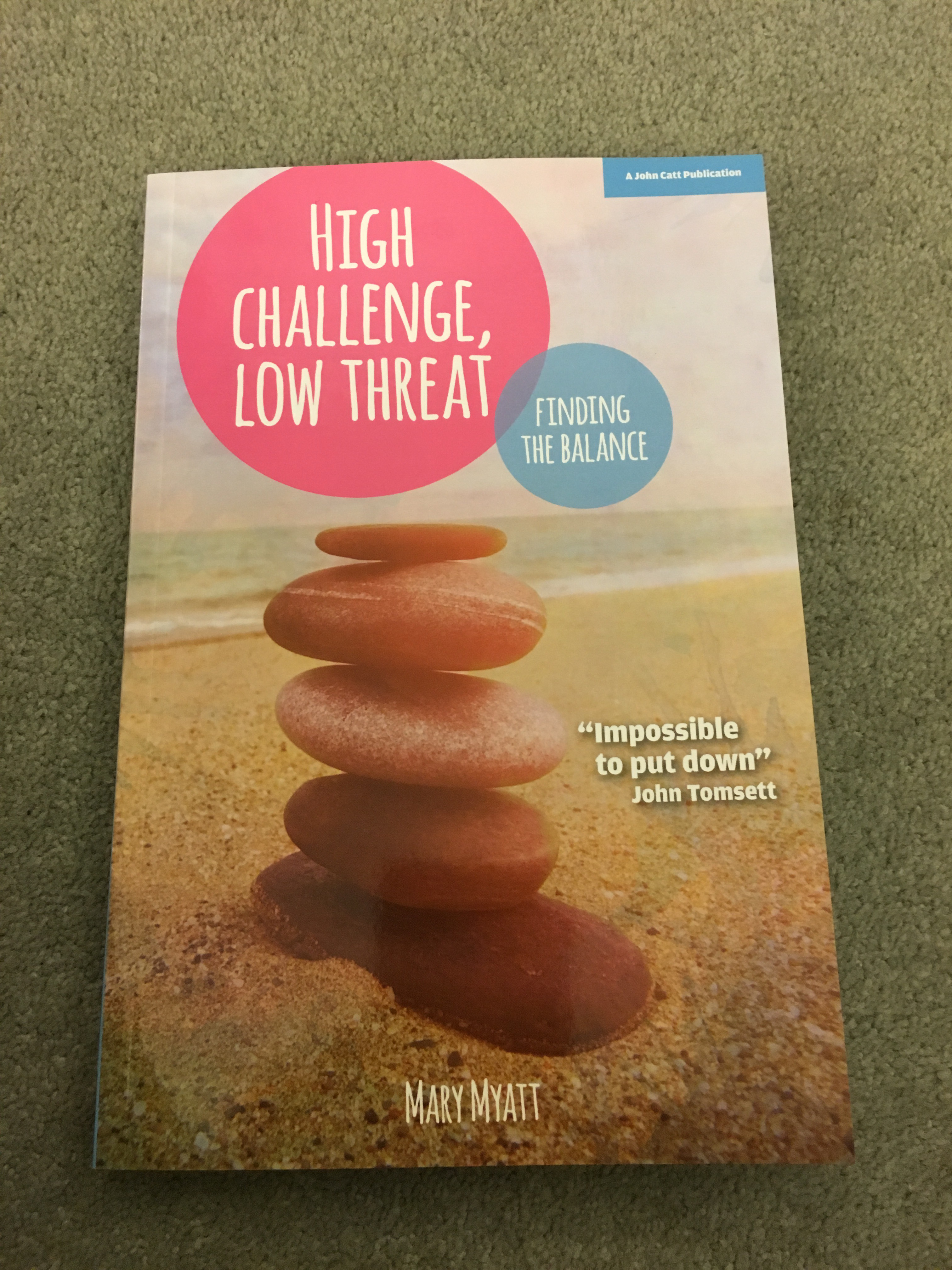






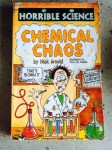




 of the school systems such as those for behaviour management and discipline those for reporting problems and those for reporting achievements and awards and merits etc. You know when reports are due and mocks or tests come along BUT by now you should be able to work a system which suits you and your subject. No whole school assessment system can suit every subject, so where do you need to branch out? When do you need your own mock, when do you need an extra assessment. You also know the rhythm of school and seasons, for example it’s not a good idea to leave a really difficult 3 week topic to mid winter; you know when illness is at its worst and can sort out work around it. You have a sense of the need for a really really outstanding lesson to lift spirits ( yours and theirs). You know what to do about ill pupils, about those who get stuck ( see me after the lesson? – not really going to work is it; what does work?). So within this class this group add a layer of your own systems to supplement the schools
of the school systems such as those for behaviour management and discipline those for reporting problems and those for reporting achievements and awards and merits etc. You know when reports are due and mocks or tests come along BUT by now you should be able to work a system which suits you and your subject. No whole school assessment system can suit every subject, so where do you need to branch out? When do you need your own mock, when do you need an extra assessment. You also know the rhythm of school and seasons, for example it’s not a good idea to leave a really difficult 3 week topic to mid winter; you know when illness is at its worst and can sort out work around it. You have a sense of the need for a really really outstanding lesson to lift spirits ( yours and theirs). You know what to do about ill pupils, about those who get stuck ( see me after the lesson? – not really going to work is it; what does work?). So within this class this group add a layer of your own systems to supplement the schools



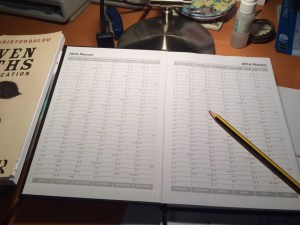 s and spend a bit of time searching for new ones. Talk more with staff and pick their brains. think and plan ahead, ask around, join twitter or the TES forums and networks, get to a teachmeet. Hey throw that weight around and move from good to great!
s and spend a bit of time searching for new ones. Talk more with staff and pick their brains. think and plan ahead, ask around, join twitter or the TES forums and networks, get to a teachmeet. Hey throw that weight around and move from good to great! as of what worked too. Do that in department meetings, tutor team meetings and mostly just in conversations in the staffroom. build some self confidence as a teacher professional in helping others. I had a great RQT colleague a few years ago and she showed me some new resources and ideas….yep teach the old dogs in school, new tricks.
as of what worked too. Do that in department meetings, tutor team meetings and mostly just in conversations in the staffroom. build some self confidence as a teacher professional in helping others. I had a great RQT colleague a few years ago and she showed me some new resources and ideas….yep teach the old dogs in school, new tricks. All of us feel there were things we just about got away with, what were yours and what do you need to do about them? Did you not prepare for a parents evening but fortunately they were mainly pleasant. Did you let a pupil off but they didn’t bring any extra issues? Did the head ask for something and you forgot but heck so did she? What things must you do better?
All of us feel there were things we just about got away with, what were yours and what do you need to do about them? Did you not prepare for a parents evening but fortunately they were mainly pleasant. Did you let a pupil off but they didn’t bring any extra issues? Did the head ask for something and you forgot but heck so did she? What things must you do better?

